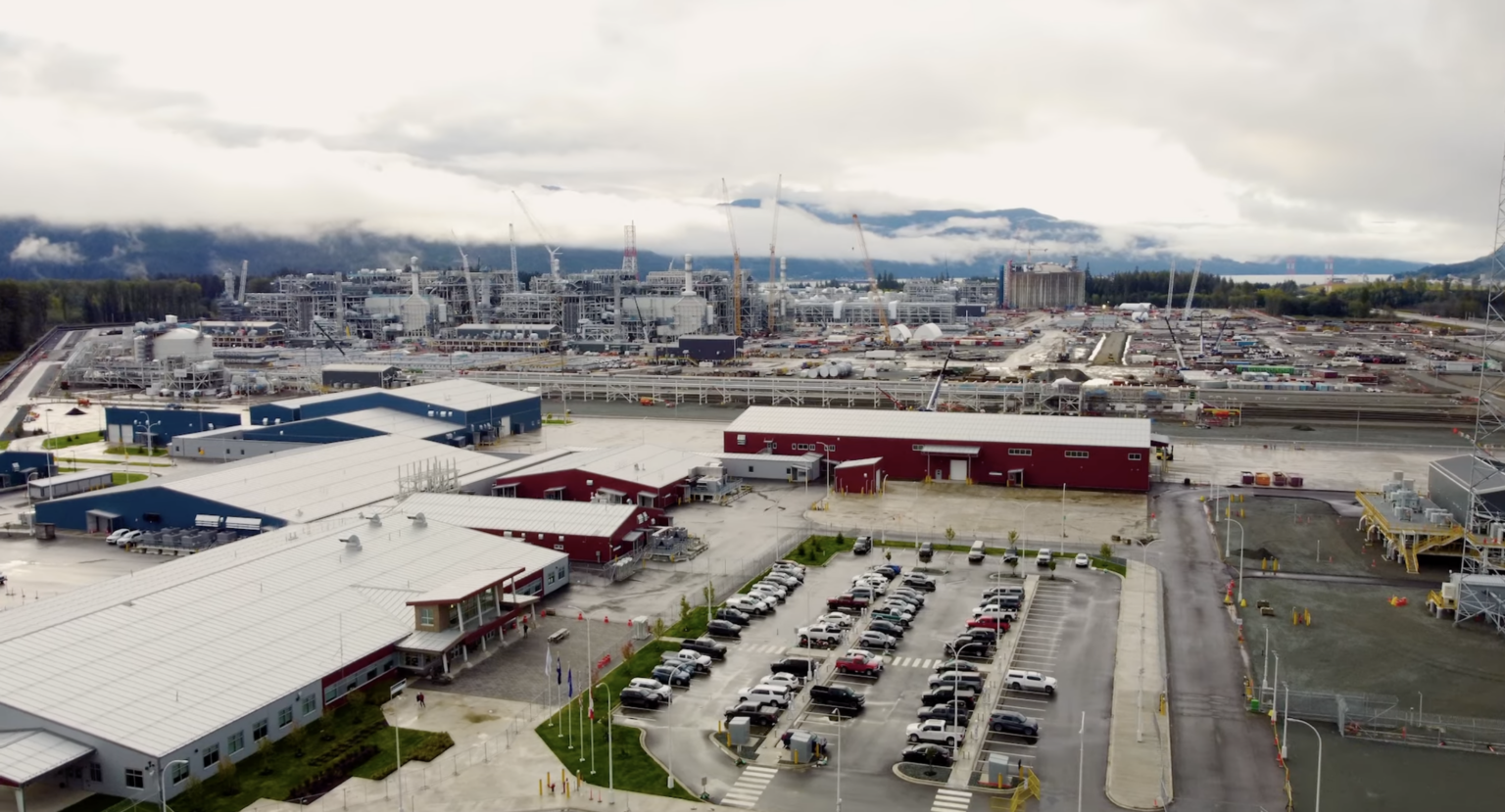Canada is on the path to detonating the world’s sixth largest “carbon bomb” thanks to new and planned liquefied natural gas (LNG) export facilities on the northwest coast of British Columbia, an international climate researcher is warning.
Those projects include LNG Canada, a $40 billion export facility led by the oil and gas company Shell that could begin shipping LNG exports to Asia next year, as well as Cedar LNG, a proposed facility owned in part by the Haisla First Nation that received environmental approval from the B.C. government last year.
Much of the gas sold on international markets through those projects could come from the Montney play, a massive gas field straddling the Alberta-B.C. border near Fort St. John containing potentially 449 trillion cubic feet of gas. RBC analyst Martin King has referred to the reserves as “gargantuan.” Fracking, shipping and then burning all that gas could be catastrophic for the global climate.
“It’s nearly 14 billion tonnes of carbon dioxide that would be pumped into the atmosphere,”
Kjell Kühne, who helps lead a research and advocacy group known as the Leave it in the Ground Initiative, told DeSmog. “It’s a case of private gain trumping the survivability of this planet.”
Kühne several years ago was part of a team that identified 425 fossil fuel projects around the world with the potential to emit a billion tonnes of carbon dioxide. Their peer-reviewed research was published in the academic journal Energy Policy. “A billion tonnes is a really significant amount,” he said. “It’s about twice the emissions of the whole country of Germany in one year.” The Montney play earned top ten status on Kühne’s list because it contains 13.7 billion tonnes of potential emissions.

At a recent natural resources conference in B.C. attended virtually by DeSmog, a representative of the Malaysia-owned gas company Petronas Canada said that gas extraction (which in the Montney is done through fracking) could grow rapidly once LNG Canada and other export facilities start operating.
“There’s a lot of dialogue out there, perhaps a misconception, that the gas that will be going for export as LNG will be gas that’s on the market now,” Brian Cox told the B.C. Natural Resources Forum. “This is growth in gas.” Petronas owns a 25 percent stake in LNG Canada.
Cox and other industry supporters claim that LNG exports are good for the climate, given that gas potentially produces less emissions when burned than coal — though some researchers have contested that, arguing that when you account for methane leaks, gas is in fact worse than coal. Kühne says that any positive comparison to coal made by LNG producers is misleading because gas still has huge carbon impacts, and we need to phase out all fossil fuels in order to stabilize the climate.
“Their basic argument is that ‘we have cleaner pollution,’” he said. “It’s like saying, ‘I’m doing you a favor by spitting in your face because I didn’t hit you.’”
This week U.S. President Joe Biden signaled that he is not fully convinced by the climate claims of LNG producers. His administration paused its review of a massive Gulf Coast export terminal and directed the Energy Department to more thoroughly consider the project’s contribution to climate change. That decision threw into question the future of 16 other proposed U.S. LNG terminals.
“This is a monumental decision that sends a powerful message about liquefied natural gas in Canada and especially in British Columbia, where big oil and gas companies are lobbying hard for massive expansion of the LNG export industry,” John Young with the Vancouver-based David Suzuki Foundation said in a press release.
“LNG locks up investment, locks out renewables and locks in emissions,” he argued.
Industry leaders are upfront about wanting the world to remain dependent on gas for decades — even as organizations like the International Energy Agency say that the world can only achieve net zero by 2050 if there is “no investment in new fossil fuel supply projects.”
“We’re long-term greedy,” Anatol Feygin, a vice president at the gas company Cheniere said this week in a webinar about the global LNG market. “We want these assets to run for decades and decades and think that they should.”
Cox from Petronas echoed those views at the recent industry conference. “There’s an incredible opportunity with B.C. LNG,” he said. “This is a growth story.”
Subscribe to our newsletter
Stay up to date with DeSmog news and alerts






